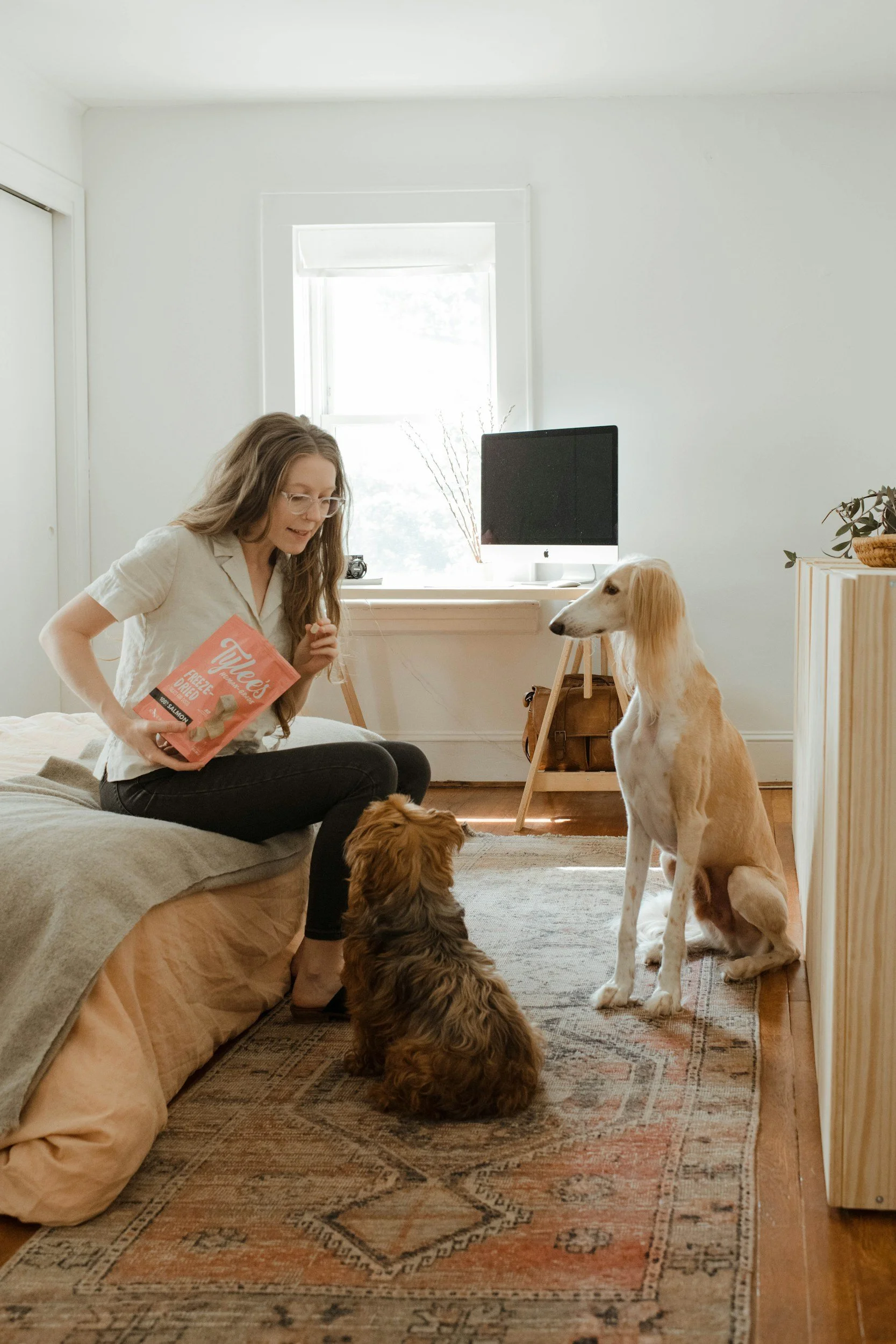Adopting a dog in Zürich (June 2025 version)
This article contains information about all the changes in the dog registration and education processes that have come into effect as of 01.06.2025.
Please note: this version is being written in July 2025. If you’re reading this from the future, know that laws and regulations may change before I have a chance to edit this site. Stay mindful and if in doubt, contact me or the Veterinary Office of Zürich for more information.
Second note: legal regulations for dog owners vary from canton to canton — this guide is about the Canton of Zürich.
All you need to know if you’re about to adopt a dog in Zürich, Switzerland (or you’re moving here with your dog from another country). There will be some bureaucracy to do but don’t worry, with this guide you will have it all in grip.
Part One: Before getting a dog / moving to Zürich with your dog
If you’re renting a flat / house, make sure that your apartment fits.
Not every landlord allows keeping pets, so look into it before making a decision of adopting a dog. You need to inform your landlord about your decision before the dog moves in. The landlord will make changes in your rental contract to include the dog to your insurance (Haftpflichtversicherung).
In case you own the house / flat you live in, update your insurance.
If you own a flat / house, make sure to contact your insurance agent by yourself to update the details (Haftpflichtversicherung).
Make sure that the breed you’ve chosen / you already have is allowed in Zürich.
There are dog breeds that are not allowed to live in the Canton of Zürich:
American Bull Terrier
American Bully
American Bully XXL
American Pit Bull Terrier
American Pocket Bully
American Staffordshire Terrier
Bandog
Basicdog
Bull Terrier
Pit Bull Terrier
Rottweiler (new dogs can’t move in from the start of 2025)
Staffordshire Bull Terrier
Swiss Blue Bully
Swiss Champagner Bully
The list is copied from the website of the Canton of Zürich. If your dog is officially a mix containing more than 10% of any of these breeds, it’s also forbidden.
Part two: things to keep in mind
These rules are pretty common for most european countries, but it still needs to be mentioned:
The dog has to be microchipped.
Switzerland is considered to be a rabies-free country so if you bring your dog from the country that is not rabies-free, it has to be vaccinated against rabies or your breeder may also provide a certificate stating that the dog was not in contact with any animals who may have had rabies.
Part Three: as soon as your dog moves in
Within ten days from adoption / moving in, get your dog registered at your Gemeinde (local authority). Here are links to start with if you live in Zürich, Horgen, Zollikon. If you live in another city of the Canton of Zürich, check Google Search for “Hund registrieren Stadt [your city]”. You will receive login to access AMICUS (the national animal database).
Within ten days from adoption / moving in, visit a veterinarian. You can choose any doctor. The vet will complete your registration at AMICUS.
Part four: once the registration is done
After following the steps above, you will receive a letter with a bill to pay for the dog tax.
At this point (latest) you have to think about training courses. Starting from 01.06.2025, all dogs moving in to the Canton of Zürich have to complete obligatory training courses. Size of your dog does not matter. More about that in the next part.
Please note: if your dog was living with you in the Canton of Zürich already before the 1st of June, 2025, new rules do not apply to you and you do not need to do the new obligatory courses.
There are two obligatory courses: Theory Course and Practical Course dog owners have to complete in Zürich. More information about it in the next parts.
Part five: obligatory training. Theory Course
Theory Course is obligatory for all dog owners, except:
those who has had a dog in the last 10 years for at least 6 ongoing months (for foreigners: unfortunately, I don’t know if you can avoid this course in case you’ve had a dog in the last 10 years while living abroad. Please, check it with the Veterinary office of Zürich).
those who take over a dog from their partner if they’ve lived together (including the dog) for at least 6 ongoing months.
dog owners who take over a specially educated assistant dog (ex. Blindenführhund) from a registered organisation.
Theory course should be completed anytime between: one year before getting a dog till maximum three months from the moment the dog has moved in.
How a theory course for dog owners it looks like:
you have to visit a 2-2.5 hour theory class. This has to be done via an online call or in person. No pre-recorded videos are permitted to substitute this since the dog trainer leading the course has to make sure you’ve really listened through.
after this, you have to pass an exam. This has to be done in person or via a specific online learning tool; exam can’t be done on a simple online call. It is a test with 25 questions (single & multiple choice; matching & sorting questions). To pass, you have to answer at least 20 questions correctly.
in case you didn’t pass, you have a right to repeat the test but not on the same day. According to the regulations, you can take as many attempts as you need.
After completing the course, your dog trainer has to add this information to AMICUS.
You are allowed to make the course and exam separately in different dog training schools. You are allowed to make the practical course in a different dog training school.
Part SIX: obligatory training. Practical Course
Practical Course is obligatory for all dogs, except:
those who were more than 10 years old when moving to the Canton of Zürich.
in case the new owner took over a dog from their partner if they’ve lived together (including the dog) for at least 6 ongoing months, and the dog has already completed the course with that partner.
dogs who have completed a similar dog training course (has to be confirmed with the Veterinary office directly).
specially educated assistant dogs (ex. Blindenführhund) from a registered organisation.
dogs working for Police (or other official organisations) or registered livestock guarding dogs used as workforce.
The course has to be done minimum when the dog is 7 months old and maximum within 12 months from the moment the dog has moved in.
How a practical course for dog owners look like:
you have to visit 6 practical lessons, 60 minutes each session.
lessons should have a minimum of one week time in between.
there is a list of goals you have to complete during these lessons, in case the goals are not completed in 6 lessons, you need to take more training sessions.
lessons could be group or private — it doesn’t matter.
After completing the course, your dog trainer has to add this information to AMICUS.
You are allowed to take theory and practical courses in different dog training schools. Also, you may change your dog school after just a few sessions — in this case your dog trainer has to provide a document stating an amount of lessons taken and goals achieved.
Conclusion
Once you’ve completed the steps above, you’re all set. You just have to keep paying your dog tax slips that you will receive per post yearly.
There are no obligatory vaccinations or medical procedures if your dog doesn’t leave Switzerland, nevertheless the rule of thumb is to visit a vet yearly.
Sad but inevitable: unfortunately, dog's don’t live forever. When it’s time, you need to register the even of death in AMICUS (your veterinarian will for sure support you on this if you have any troubles).









